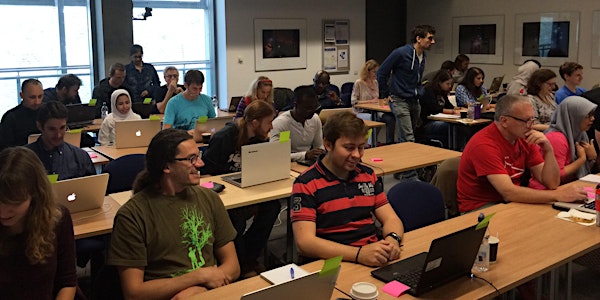
Data Carpentry at the University of Southampton
Date and time
Location
Room 2207
Building 85 (Life Sciences Building) University of Southampton Southampton SO17 1BJ United KingdomDescription
Data Carpentry is for researchers who want to learn skills and tools to analyse and manage their data more effectively.
In the course, we will cover data organisation in spreadsheets and OpenRefine, SQL for data management, and an introduction to R for data analysis. By the end of the workshop learners will be able to more effectively analyse and manage their data to aid reproducibilty and - importantly - to increase their chances of furthering their research.
No prior computational experience is required, but being familiar with basic programming concepts (like loops, conditionals, arrays, and functions) would be helpful.
Schedule: The schedule for the two day workshop can be found on the workshop website along with other details about the workshop.
Who: The course is aimed at researchers from postgraduate to professors. You don't need to have any previous knowledge of the tools that will be presented at the workshop.
Requirements: Participants must bring a laptop with a Mac, Linux, or Windows operating system (not a tablet, Chromebook, etc.) that they have administrative privileges on. They should have a few specific software packages installed (see below). They are also required to abide by Data Carpentry's Code of Conduct.
Contact: This workshop is being organised by the University of Southampton's Research Software Group and the Software Sustainability Institute. If you have any questions, please email us.
Topics Covered on Day 1:
- Data organisation in spreadsheets: Good data organisation is the foundation of any research project. Most researchers have data in spreadsheets, so it’s the place that many research projects start. We will cover good data entry practices, how to avoid common formatting mistakes, approaches for handling dates in spreadsheets, basic quality control and data manipulation in spreadsheets and exporting data from spreadsheets.
- Using Open Refine to work with messy data: a part of the data workflow is preparing the data for analysis. OpenRefine (formerly Google Refine) is a powerful free and open source tool for working with messy data: cleaning it and transforming it from one format into another. This lesson will teach you to use OpenRefine to clean and format data and automatically track any changes that you make. Many people comment that this tool saves them literally months of work trying to make these edits by hand.
- An introduction to R, part 1: R is one of the most popular languages used to analyse and visualise data. In this session we will introduce learners to the R program and introduce basic programming concepts.
Topics covered in day 2:
- Introduction to R, part 2: Building on the basics learned on day 1, we will introduce more complex concepts and discuss visualisation of data
- Introduction to databases: Working with data almost always means working with databases. In this session we will introduce the basics of SQL - the language of relational databases.
Data Carpentry is an international movement to teach researchers better software skills. For more information about Data Carpentry, visit their website.
This workshop is kindly supported by the EDISON project - building the data science profession.
Organised by
The Software Sustainability Institute is an EPSRC, BBSRC and ESRC funded national facility that cultivates world-class research with software.We help people build better software, and we work with researchers, developers, funders and infrastructure providers to identify key issues and best practice in research software.
The Research Software Group is a new group based in Electronics and Computer Science that helps researchers from all faculties to develop better research software. We also run Software Carpentry courses, because we believe that good software will advance research. Our staff comprise the Southampton wing of the world-leading Software Sustainability Institute.